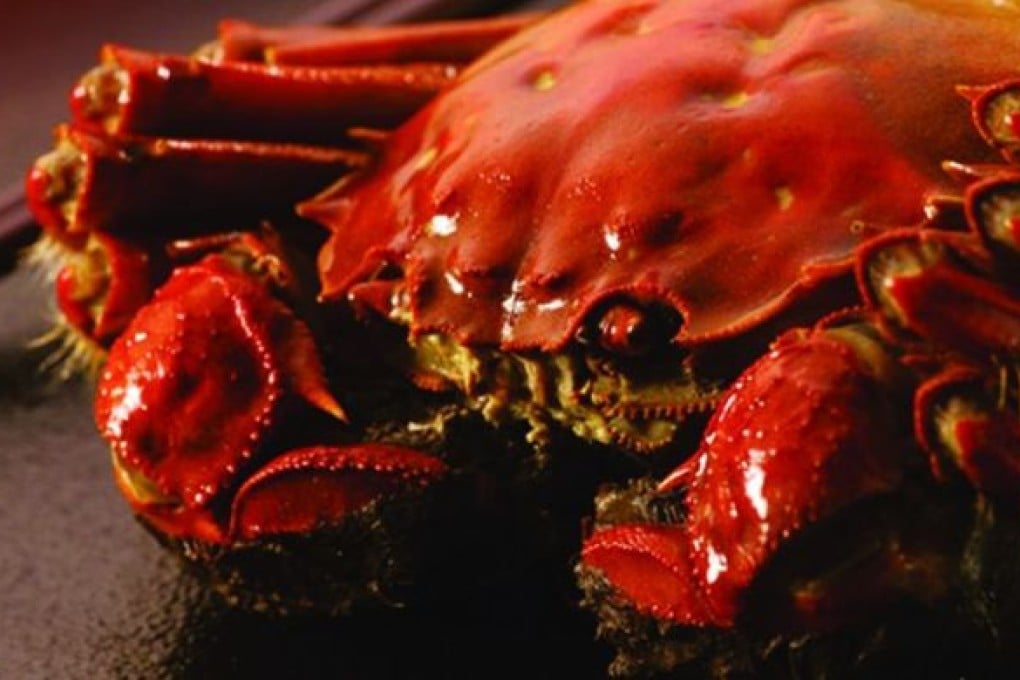The Hair of the Crab
It’s that time of year again: we show you how to get down and dirty, sticky-icky, with the very hairy hairy crab.

Hairy’s a peculiar term to associate with anything edible, but the hairy crab is an unusual exception. Come fall, these modestly sized creatures suddenly appear ubiquitously at market stalls, lined up like stoic soldiers on a battlefield, their legs and claws bound tight in bamboo string. Meanwhile, Chinese restaurants clamber to add fancy and creative hairy crab dishes onto their menu to acknowledge the seasonal trend.

The meat’s notably hard to get to, what with the crab’s small bodies and skinny, spiny legs—and it’s worth the effort after you taste the fresh and flaky meat, but hairy crab loyalists will pretty much swear by the roe. See our guide to disassembling the creatures (right).
“In one bite, you can tell the difference between hairy crab and other crabs by its roe. The roe is a lot sweeter and creamier than any other,” chef Yeung Kin-yip of Loong Yat Heen Restaurant says of the muddy green-hued crustaceans.
The best hairy crabs are found mainly in Suzhou, Jiangsu Province. Taihu (Lake Tai) and Yangcheng Lake are famed for the creatures (although you can find them in both brackish and fresh water). In recent years the crabs have become scarcer due to changing water temperatures and water quality, Yeung says. Naturally, this means prices have gone up accordingly. Yeung notes that several hundred dollars per four to five tael (or 1/16 catty) of hairy crab is not uncommon.

Hairy crab frenzy begins as early as September, but our chefs say the best time to indulge in them is from October to November. “As the crabs store up all the energy and fat for the coming winter; the roe is richer and the meat is more tender,” says Yeung.